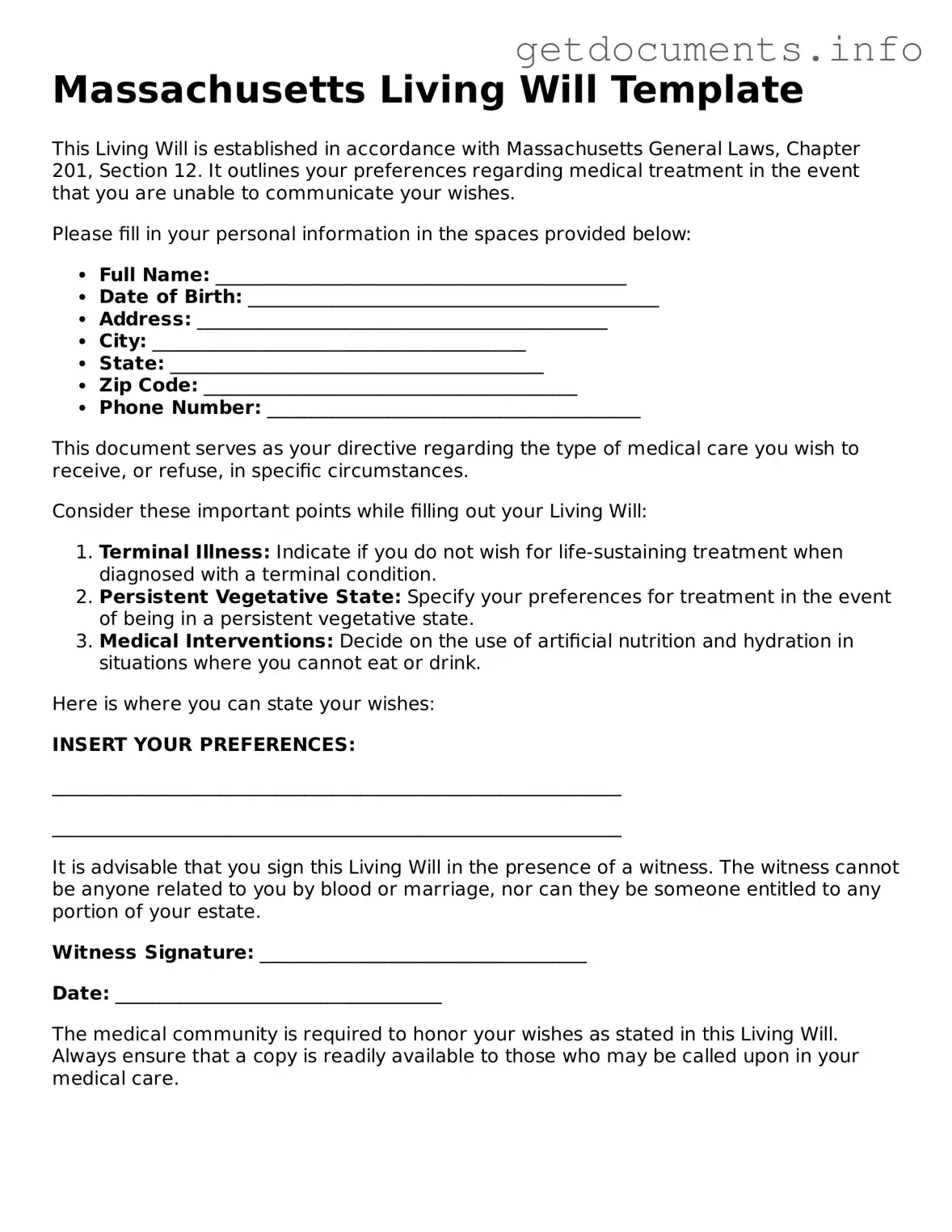Free Living Will Template for Massachusetts
A Massachusetts Living Will form is a legal document that allows individuals to outline their preferences for medical treatment in the event they become unable to communicate their wishes. This form serves as a crucial tool for ensuring that healthcare providers and family members understand a person's desires regarding end-of-life care. To take control of your healthcare decisions, consider filling out the form by clicking the button below.
Access Living Will Editor

Free Living Will Template for Massachusetts
Access Living Will Editor
Got places to be? Complete the form fast
Fill out Living Will online and avoid printing or scanning.
Access Living Will Editor
or
⇩ PDF File
